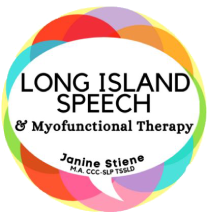Blog
Apraxia of Speech
I recently came across a great blog post on the ASHA Leader, about a speech-language pathologist who had previously successfully treated clients with apraxia of speech. However, because apraxia of speech presents differently in each individual, she had missed her own child’s symptoms of the motor planning disorder. Continue reading to learn more about apraxia of speech and early symptoms of the motor planning disorder!
Childhood apraxia of speech is a motor speech disorder characterized by the inability to plan and sequence the volitional movements of the oral musculature (jaw, lips, tongue) required for speech production. These children often present with inconsistent speech sound errors, effortful speech production, and increased difficulty producing more complex utterances. Children with apraxia of speech may also present with groping behaviors when trying to coordinate the oral musculature for speech production.
It is important to remember that all children with apraxia of speech may present differently. Below you will find some early symptoms of apraxia of speech (Retrieved from ASHA Leader):
- Limited babbling
- Limited phonetic diversity (few consonant or vowel sounds in their repertoire)
- Inconsistent errors
- Predominant use of simple syllable shapes
- Difficulty producing increasingly complex utterances
- Omissions
- Vowel errors/distortions
- Excessive, equal stress (might also sound monotonous, or stress the wrong syllable)
- Loss of previously produced words
- More difficulty with volitional speech production
- Better automatic speech production (rote counting, days of the week)
- Better understanding of language than use
An early diagnosis of the motor planning disorder may yield better results for the child. If you have concerns about a motor planning disorder, it is important to have your child evaluated by a speech-language pathologist to rule out other speech sound disorders.
To read the ASHA Leader Blog post, click here:
http://blog.asha.org/2015/04/09/10-early-signs-and-symptoms-for-childhood-apraxia-of-speech/
For more information on apraxia of speech, click here:
http://www.asha.org/public/speech/disorders/ChildhoodApraxia.htm
Nicole Sullivan
M.A., CF-SLP TSSLD




